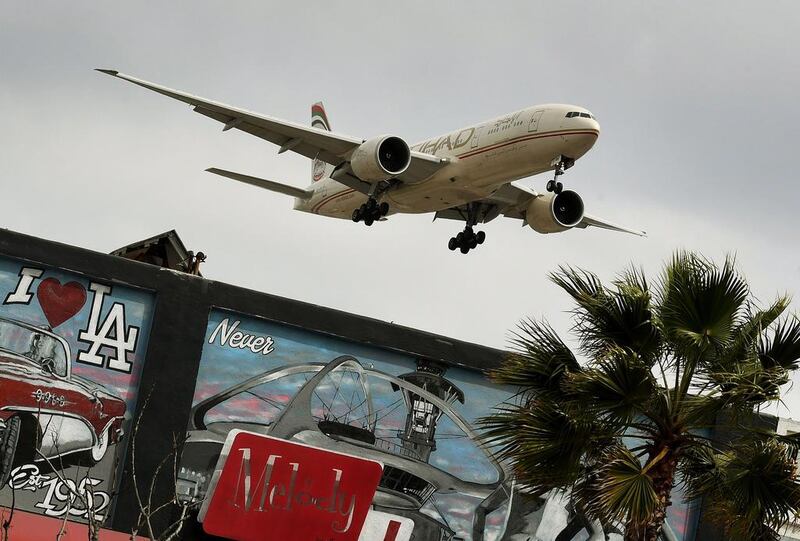The growth rate in passenger traffic for airlines in the Middle East slowed in March amid lower oil prices. The drag may deepen as results from the US laptop ban begin to show.
Regional carriers’ traffic growth eased to 4.9 per cent year-on-year in March, according to figures released on Saturday by the International Air Transport Association (Iata). Meanwhile, the year-on-year growth rate stood at 14.4 per cent in January and 9.5 per cent in February.
The slower growth corresponds to a slide in oil prices. Brent crude, the international benchmark, was at $52.83 a barrel at the end of March, down by 5 per cent from the start of the year. And by the close on Friday, Brent had fallen by another 7.1 per cent.
The load factor for Middle East carriers – that is, the percentage of seats that were occupied – dropped 3.1 percentage points in March, to 73.1 per cent. That was the lowest figure of any region other than Africa.
“A peak-hour flight from Abu Dhabi to Kuwait may be full, but on the way back it is off-peak and the flight is not so full,” said Will Horton, a senior analyst at the aviation research company Capa. “As intra-regional travel is often over short distances, it is cost effective for airlines to use large aircraft that would otherwise sit on the ground in between long-haul flights. So while that may generate over-capacity, it is cheaper to boost aircraft utilisation than use a smaller sized aircraft.”
Alexandre de Juniac, Iata’s chief executive, said that while the global figures for March were strong, “the last weeks have been challenging to the passenger business”. He said any impact from the laptop ban will be visible from the April results onwards.
The US government announced at the end of March that it would prohibit passengers from eight Middle East countries, including the UAE, carrying electronic devices larger than a smartphone on to flights bound for the US, citing security concerns. Britain followed suit but excluded the Arabian Gulf’s big three carriers – Etihad Airways and Emirates, from the UAE, and Qatar Airways.
Etihad responded by offering free Wi-Fi and iPads to its premium passengers. Emirates meanwhile is offering Microsoft tablets on request to premium clients on all US-bound flights.
Still, the electronic ban has taken a toll on Emirates. It said last month that it was reducing the number of flights to five of the 12 US cities it serves.
Etihad has not made any changes to its US schedule and has said it will upgrade its second daily New York service to an A380 starting in June.
Meanwhile, the UAE is working to encourage other countries to sign open-skies agreements. The country’s General Civil Aviation Authority signed an open-skies agreement on Thursday with the government of Belize.
The GCAA’s director general, Saif Al Suwaidi, said that these agreements play a crucial role in boosting investment and tourism as well as strengthening business ties between the UAE and countries worldwide.
“This agreement guarantees sustainable growth for the national carriers of both countries,” said Laila Al Muhairi, the GCAA’s assistant director general of strategy and international affairs. “It helps support plans and investments related to air transport that is being targeted by the national carriers in the UAE.”
lgraves@thenational.ae
Follow The National's Business section on Twitter





